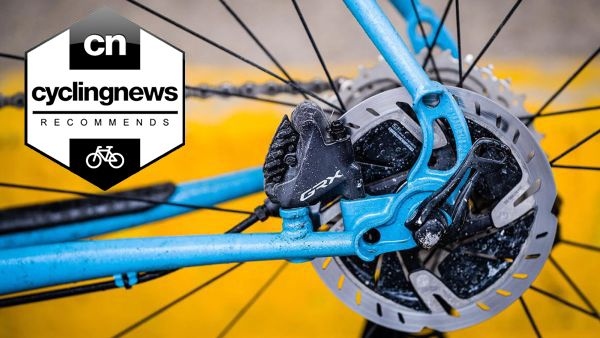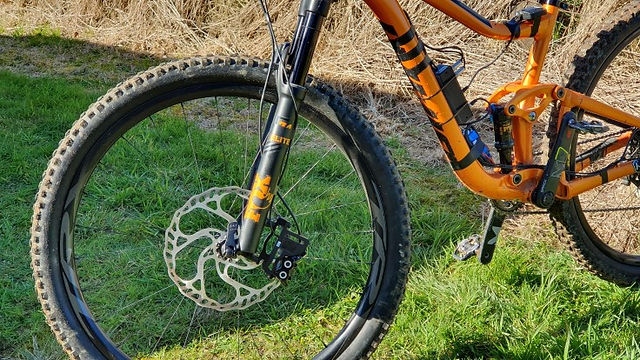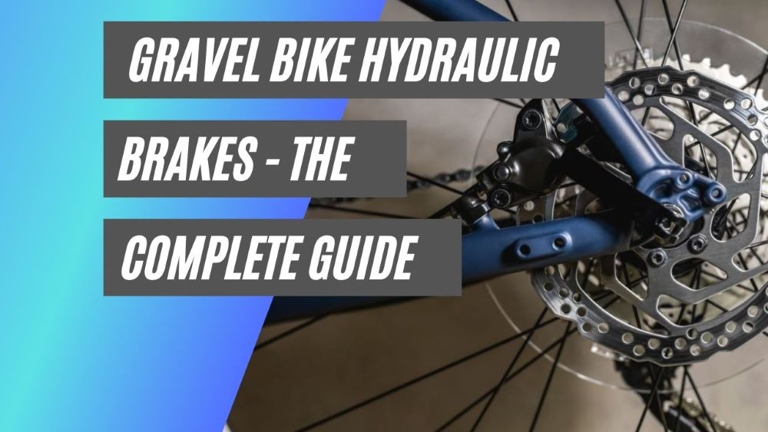Gravel bikes are becoming increasingly popular, and with good reason. They offer the perfect blend of speed, comfort, and versatility. One of the most important aspects of a gravel bike is the brakes. Hydraulic brakes are the best option for gravel bikes, offering superior stopping power and modulation. In this complete guide, we’ll take a look at everything you need to know about gravel bike hydraulic brakes.
Are Hydraulic Brakes the Best on a Gravel Bike?
Gravel bikes are becoming increasingly popular, and with that comes a need for more information on the best components for a gravel bike. In this section, we will focus on hydraulic brakes and whether or not they are the best option for a gravel bike.
Hydraulic brakes have many benefits that make them ideal for a gravel bike. They are also easier to modulate, so you can make finer adjustments to your braking. They provide more stopping power than mechanical brakes, which is important when riding on loose or uneven surfaces.

However, hydraulic brakes do have some drawbacks. They can be more expensive than mechanical brakes, and they require more maintenance. They also add weight to your bike, which can be a downside if you are trying to keep your bike as light as possible.
Ultimately, the decision of whether or not to use hydraulic brakes on your gravel bike is up to you. If you value performance and are willing to pay a bit more for it, then hydraulic brakes are a great option. But if you are looking to save money or keep your bike as light as possible, then mechanical brakes may be a better choice.
Don’t exceed the recommended rotor size
The first is weight. Some gravel bikes have very limited clearance, and adding larger rotors may cause the tires to rub. Larger rotors are heavier, and this can impact the handling of your bike on gravel roads. Finally, you’ll need to make sure that your frame and fork can accommodate larger rotors. If you’re unsure, it’s always best to consult with a professional before making any changes. Another thing to consider is tire clearance. Additionally, larger rotors can create more vibration, which can be uncomfortable on long rides. There are a few things to consider when deciding whether or not to exceed the recommended rotor size on a gravel bike.

In general, we recommend sticking to the recommended rotor size for your gravel bike. Just be sure to weigh all the factors before making a decision. However, if you feel like you need more stopping power, or if you’re simply looking to upgrade your bike, then increasing the rotor size may be the right choice for you.
Cons of using hydraulic brakes on a gravel bike
One is that they can be more expensive than mechanical brakes. Another is that they require more maintenance, as the fluid in the system will need to be changed periodically. Additionally, hydraulic brakes can be less effective in cold weather, as the fluid can freeze. There are a few potential drawbacks to using hydraulic brakes on a gravel bike.
Can you install hydraulic brakes on a bike with rim brakes
Hydraulic brakes are the best brakes for a gravel bike. They provide more stopping power than rim brakes, and they are easier to adjust and maintain. Hydraulic brakes also offer more control and feel than rim brakes. If you are looking for the best possible braking performance on a gravel bike, hydraulic brakes are the way to go.
Do Gravel Bikes Have Hydraulic Brakes?
Gravel bikes have become increasingly popular in recent years as more people look for ways to explore the great outdoors on two wheels. One of the most important features of a gravel bike is its brakes, which need to be able to handle all kinds of terrain and weather conditions.

Hydraulic brakes are the most popular choice for gravel bikes, as they offer superior stopping power and modulation compared to mechanical brakes. However, they can be more expensive and require more maintenance than mechanical brakes.
We’ll also provide some tips on how to maintain your hydraulic brakes so they continue to perform at their best. In this section, we’ll take a closer look at gravel bike hydraulic brakes, including their benefits and drawbacks.
Are Hydraulic Bike Brakes Better at Braking
They offer more stopping power and are less affected by weather and terrain conditions. Hydraulic bike brakes are often seen as the superior choice for gravel biking. However, they can be more expensive and difficult to maintain than mechanical brakes.
How Can You Tell if Your Bike Has Hydraulic Brakes
If you’re not sure whether or not your bike has hydraulic brakes, there are a few things you can look for. First, hydraulic brakes typically have a larger and more powerful brake lever than mechanical brakes. Second, the brake hose on a hydraulic brake system is usually longer than the brake cable on a mechanical system. If you’re still not sure, you can always ask your bike mechanic or take your bike to a local bike shop for help. Finally, hydraulic brakes usually have a larger and more powerful caliper than mechanical brakes.
Sources
The third thing to consider is your riding style. If you’re a casual rider, you’ll probably be fine with a less expensive brake. When it comes to choosing the right hydraulic brakes for your gravel bike, there are a few things to consider. If you’re mostly riding on paved roads, you’ll want a brake that’s designed for that type of terrain. There are a variety of hydraulic brakes on the market, and the price can range from a few hundred dollars to a few thousand dollars. The first is what type of terrain you’ll be riding on. No matter what your budget or riding style, there’s a hydraulic brake out there that’s perfect for you. If you’re planning on doing a lot of off-road riding, you’ll want a brake that’s designed for that type of terrain. The second thing to consider is your budget. If you’re a more aggressive rider, you’ll want a brake that can handle your riding style.
Frequently Asked Questions
1. What are hydraulic brakes?
Hydraulic brakes are a type of bicycle brake that uses hydraulic fluid to transfer force from the lever to the caliper. This type of brake is typically found on mountain bikes and road bikes.
2. How do hydraulic brakes work?
Hydraulic brakes work by using a lever to pressurize hydraulic fluid in a sealed system. This pressure is transferred to the caliper, which then squeezes the brake pads against the rotor to slow down the wheel.
3. What are the benefits of hydraulic brakes?
Hydraulic brakes offer several benefits over other types of brakes, such as cable-actuated brakes. Hydraulic brakes are typically more powerful, meaning they can provide more stopping force. They also tend to be more responsive, meaning they will engage more quickly when the lever is actuated. Additionally, hydraulic brakes are self-adjusting, so they require less maintenance than other types of brakes.
4. Are there any downsides to hydraulic brakes?
One downside to hydraulic brakes is that they can be difficult to adjust. If the brake pads need to be replaced, for example, it can be tricky to get the new pads aligned correctly with the rotor. Additionally, if the system is not properly maintained, air can enter the system and cause the brakes to feel spongy or unresponsive.
5. How do I know if my bike is compatible with hydraulic brakes?
Most mountain bikes and road bikes are compatible with hydraulic brakes. If you’re unsure, consult your bike’s owner’s manual or the manufacturer.
6. How do I bleed my hydraulic brakes?
Bleeding your hydraulic brakes is a relatively simple process, but it does require some special tools and knowledge. We recommend taking your bike to a qualified mechanic or bike shop to have the brakes bled.
7. What type of hydraulic fluid should I use?
There are several types of hydraulic fluid available, but the most common is mineral oil. You can also find hydraulic fluids that are compatible with DOT 3, DOT 4, and DOT 5.1 brake systems.
8. How often should I change my hydraulic fluid?
It’s generally recommended that you change your hydraulic fluid every two years or so. However, if you ride in particularly dusty or muddy conditions, you may need to change it more frequently.
9. What are the signs that my hydraulic fluid needs to be changed?
If your brakes feel spongy or unresponsive, it may be time to change the hydraulic fluid. Additionally, if you notice any leaks in the system, it’s a good idea to change the fluid.
10. Can I use hydraulic brakes with carbon fiber rims?
Yes, you can use hydraulic brakes with carbon fiber rims. However, you’ll need to be careful to avoid overheating the brakes, which can damage the rims. We recommend using brake pads that are designed for use with carbon fiber rims.
Final thoughts
Hydraulic brakes are the best option for gravel bikes. They offer more stopping power and are easier to modulate than mechanical brakes. However, they are more expensive and require more maintenance. If you are looking for the best performance, go with hydraulic brakes.
